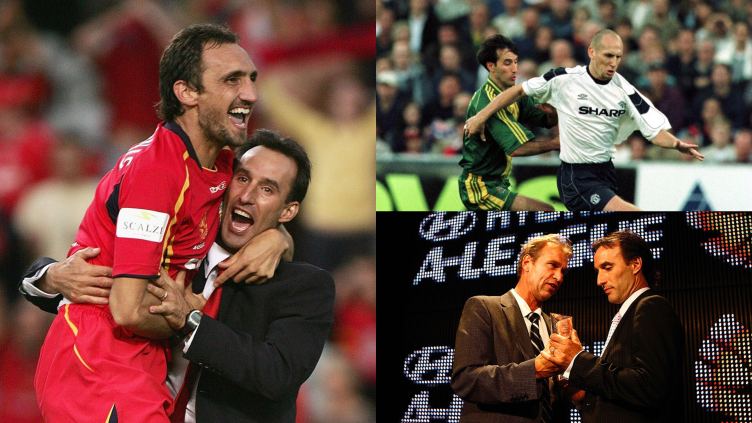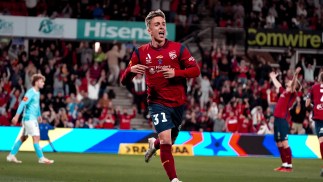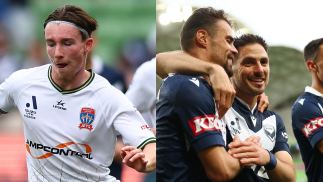13 years after his last coaching stint in the A-Leagues, Aurelio Vidmar is back in Australia’s premier competition, after being announced as the new head coach of Melbourne City’s men’s side. Vidmar takes over from former City boss Rado Vidosic, whose contract was mutually terminated this week.
The former Adelaide United boss takes over a City side reeling after back-to-back defeats to start the campaign, including a 6-0 drubbing at the hands of his former side in their last outing.
He will also be tasked with leading the reigning premiers in the AFC Champions League, where they currently sit top of their group heading into the final three group stage matches.
Ahead of his return to the touchline this weekend against Sydney FC, aleagues.com.au looks at Vidmar’s almost four decade long playing and coaching career.
NEWS: Melbourne City immediately part ways with Rado Vidosic, appoint Socceroos legend
Playing career
Before coaching, Aurelio Vidmar had one of the most distinguished club careers of all Australian players.
Vidmar made 517 appearances and scored 127 goals over two decades playing across the globe, under the likes of Les Scheinflug, Eddie Thomson, Terry Venables, Raul Blanco and Frank Farina in the national team.
His playing career started with Adelaide City in the National Soccer League in 1985, where he spent six years at the club and tallied over 150 appearances in his first stint. Aurelio also played alongside his brother, Tony, who would debut for the club four years later.
Vidmar helped the club lift the 1986 NSL Championship, defeating Sydney Olympic 3-2 on aggregate. City lost the first-leg 1-0 at home, before heading on the road to Parramatta Stadium and defeating Olympic 3-1 to secure the title.
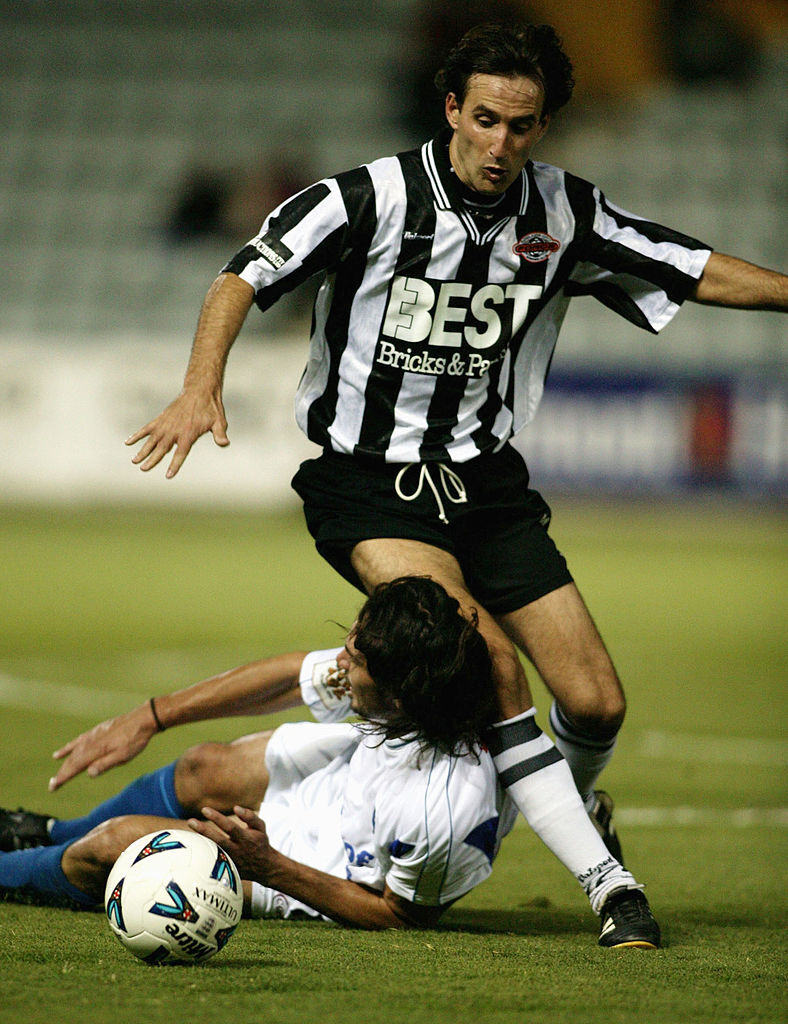
Vidmar then spent four years in Belgium, playing firstly for Kortrijk, before signing for Waregem and Standard Liege. In his one season at Liege, Vidmar won the Belgian League Golden Boot, scoring 22 goals for the local giants.
“They (Australians) weren’t (respected in Europe), I think we only had a few that were playing overseas at that stage, so it was quite tough,” he recalled.
“I remember I went to Ekeren (now Beerschot), where Tony had signed some months later and I had a week’s trial there. Tony’s ex-coach at that time didn’t sign me.
“So I said alright and waited another week in Antwerp in the hotel. Then I had a trial at Kortrijk, I went there for two weeks. At the end it was very strange, what happened was the coach said to me at the end of the trial he goes ‘we’re just going to have a finishing session.’
“The thing for me is I always a midfielder but when I went to Europe they were looking for a striker and I said I’m going to do everything I can to get a contract.
“These finishing exercises; it was between me and an Algerian trialist. He went first and crossed for me, he was putting in some really nice balls and I was putting them away with the head and the foot, (it) was going well.
“To be a son of a b**** in a way, when it was my turn, I shanked some balls, gave him some terrible crosses and said ‘sorry, I’m not a winger, I can’t cross the ball!’
“By that stage I had learned that if you’re not like that you’re going to get left behind, because it’s a dog eat dog world out there especially in European football.
“In the two weeks, not one player said a word to me. Once I signed, they all put their hand around me and said oh you’re Australian, are you? That’s how it was. It was very difficult.
“Most of the Europeans thought at that stage, the only things that come out of Australia are AFL players or rugby players because that’s what they thought we played.”
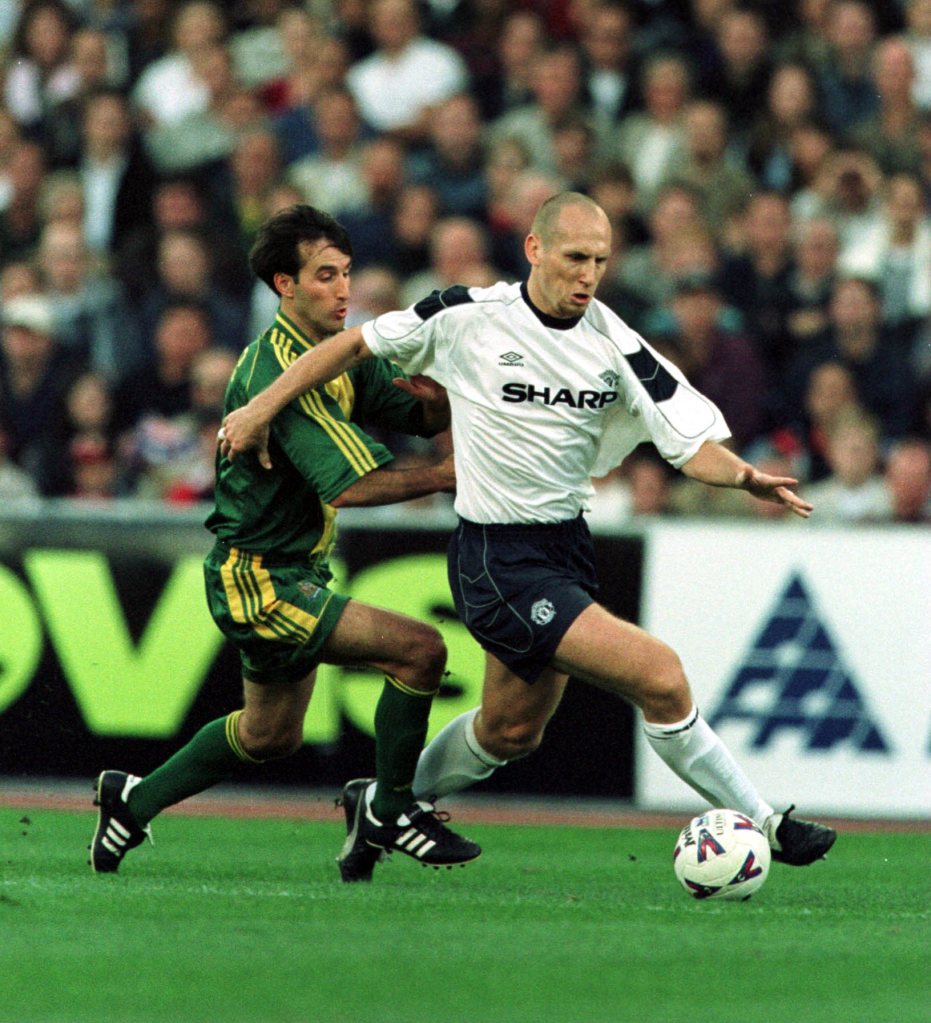
This was the standout period of Vidmar’s playing career; he had just become a regular in the Socceroos squad after earning his maiden call-up in 1991. Vidmar scored in Australia’s 1-1 draw with Diego Maradona’s Argentina in the first-leg of their OFC-CONMEBOL 1994 FIFA World Cup play-off in Sydney, and started in their heartbreaking 1-0 defeat in the second-leg in Buenos Aires.
“At that stage it wasn’t a normal thing to go and play one of the world’s greatest teams and football nations, then on top of that having Maradona come to our shores to play a competitive game that obviously lifted the interest in that game,” Aurelio recalled in the aforementioned series.
“Although he was towards the end, just being close to him and watching him live and the way he moved, especially when the ball was at his feet, was different class altogether.
“You can imagine what he was like when he was in his prime. It was a great night, great atmosphere.
“It wasn’t as hostile (in Argentina as it was in Uruguay in ’05), that’s for sure. We were able to walk in the main streets and have fans come up and sign autographs and things like that.
“Sure, they made noise around the hotel and quite late at night but it wasn’t as bad as the Uruguay game from what I understand.”
He was recognised for his performances by winning the Oceania Footballer of the Year in 1994.
After starring at Liege, Vidmar signed for Dutch giants Feyenoord and bounced around the world at the likes of Swiss side Sion (where he won the 1995-96 Swiss Cup), Spanish outfit Tenerife, then in Japan with Sanfrecce Hiroshima.
In 1997, Vidmar would play a key role in the Socceroos’ run to the Confederations Cup final, en route to their 6-0 defeat to Brazil in the final, along with starting in the infamous loss to Iran at the MCG in the same year, that saw the Socceroos miss out on qualification for the 1998 FIFA World Cup.
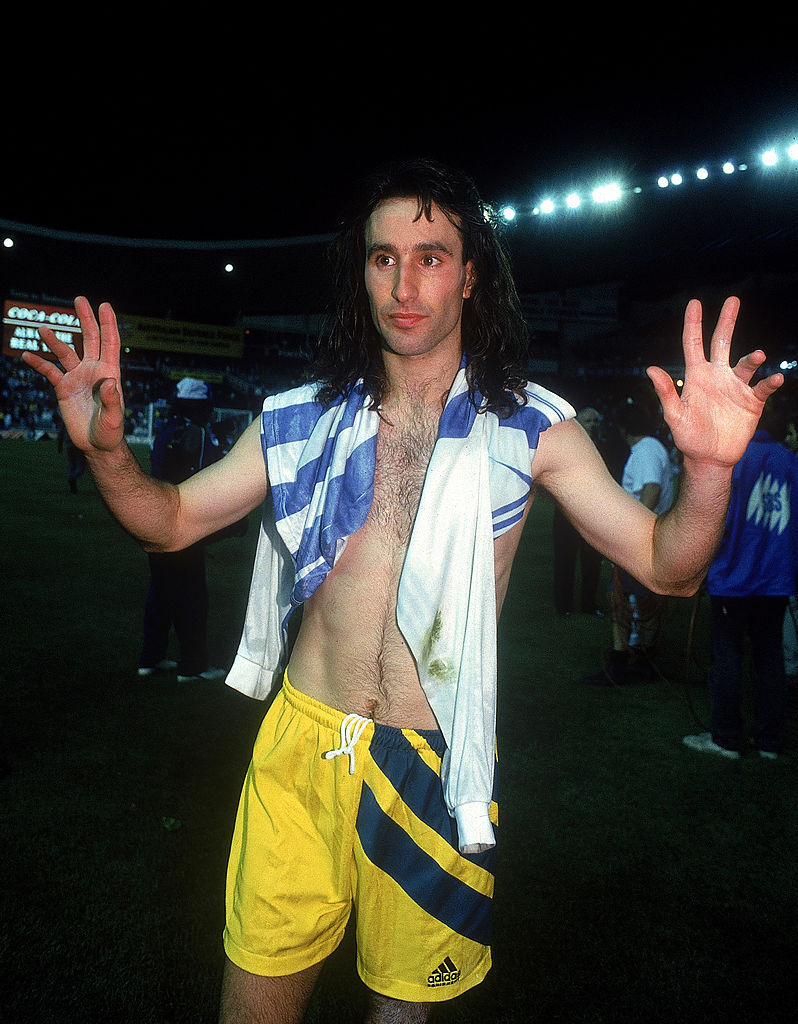
Vidmar rejoined Adelaide City in 1999, playing four years for his junior club, before signing with Adelaide United and was made captain by inaugural coach John Kosmina.
Meanwhile, he played on for the Socceroos until 2001, featuring and scoring in the famous 31-0 over American Samoa in April that year.
Vidmar announced his retirement in 2005, just before the Reds became an A-Leagues franchise.
Adelaide United
Vidmar’s coaching career started as Kosmina’s assistant for the first two seasons of the A-Leagues, helping the club win the inaugural Isuzu UTE A-League Premiership and make the Grand Final the following season.
After a 6-0 drubbing at the hands of Melbourne Victory in the decider, Kosmina was removed as senior head coach and replaced by Vidmar in May 2007.
His first season at the helm was a difficult one, as Adelaide missed the finals and were knocked out in the group stage of the Asian Champions League, which fulled calls for his resignation.
Vidmar bounced back with an impressive second season in charge, leading the club to the 2008 Champions League Final – where they lost 5-0 on aggregate to Gamba Osaka in the decider.
Adelaide missed out on the Premier’s Plate on goals scored to Victory, who they met in the major semi-finals. Victory would romp the Reds 6-0 on aggregate, which fulled an infamous post-game press conference where he described Adelaide as a “piss-ant town”.
“There are too many people at this club with hidden agendas,” he said.
“That 4-0 result was because of that. Because of a piss-ant town, this club will never win anything.”
In the documentary titled The People’s Club, Vidmar recalled the famous incident, which came amidst the backdrop of a turbulent period at the club, when a reshuffle of senior roles at the club led Vidmar to breaking point.
“We got flogged by Melbourne Victory,” he recalls. “The place smelled a little bit, let’s put it that way. I probably went a little bit over the top, but I got my point across, I think.
“Nick Bianco (former Adelaide owner) and (former chairman Dario Fontarosa) had some issues at their workplace, and said: ‘We’re going to have to spend a bit more time looking after the workplace. Someone else is going to be the chairman’.
“That chairman decided to start having meetings with the players, giving them surveys, who they want for their football director, who they want for their doctor. The players came up to me and said: ‘Hey Viddy, this is what is happening’ – and I didn’t even know about it.
“I was trying to get a hold of the owners for weeks to put things straight. It just never happened so I took the opportunity – if no one was listening, well you’re going to listen now.”
Adelaide responded by defeating Queensland Roar 1-0 in the Preliminary Final, to set up a rematch against Victory in the Grand Final. Reds striker Cristiano was contentiously sent off in the tenth minute, before Tom Pondlejak slammed home the winner for Victory in the 60th minute.
Despite losing the Grand Final, Vidmar was awarded the Isuzu UTE A-League Coach of the Year.
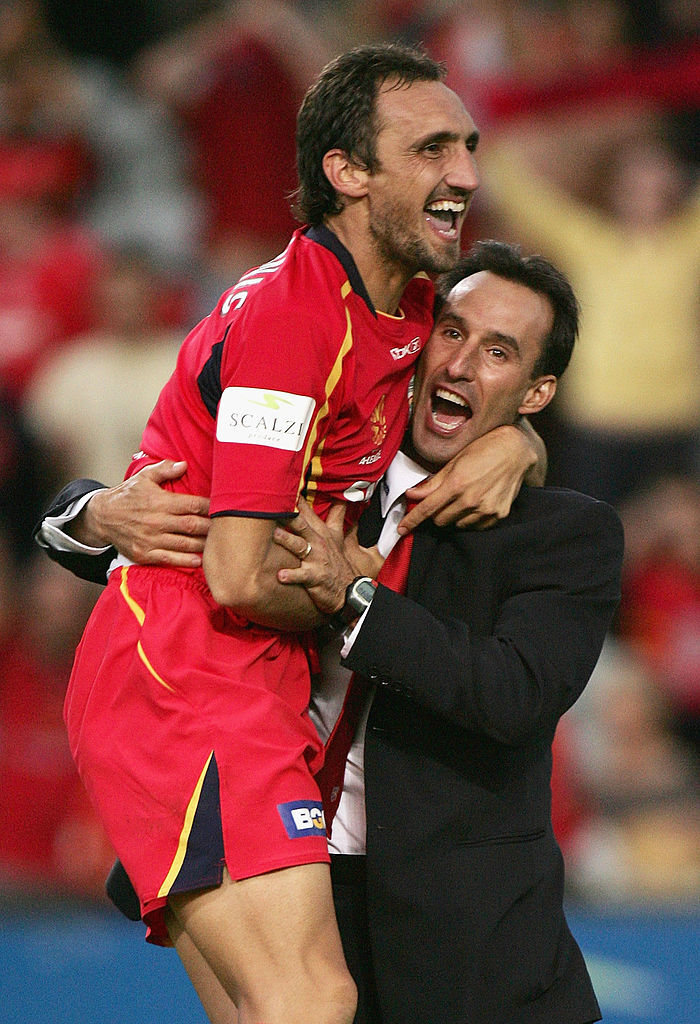
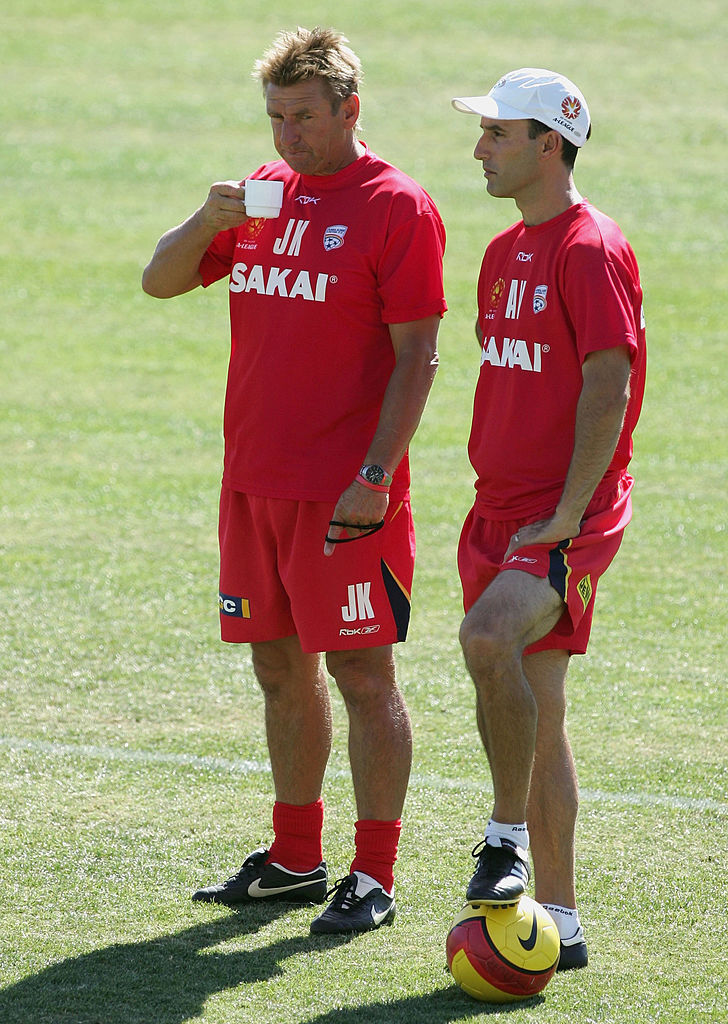
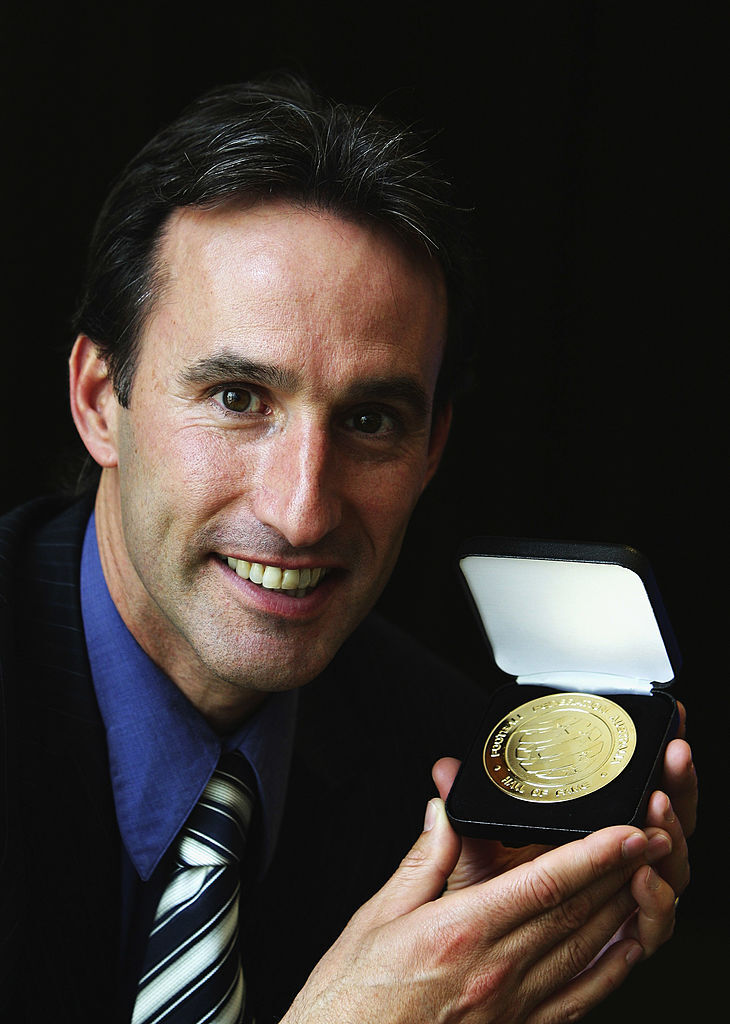
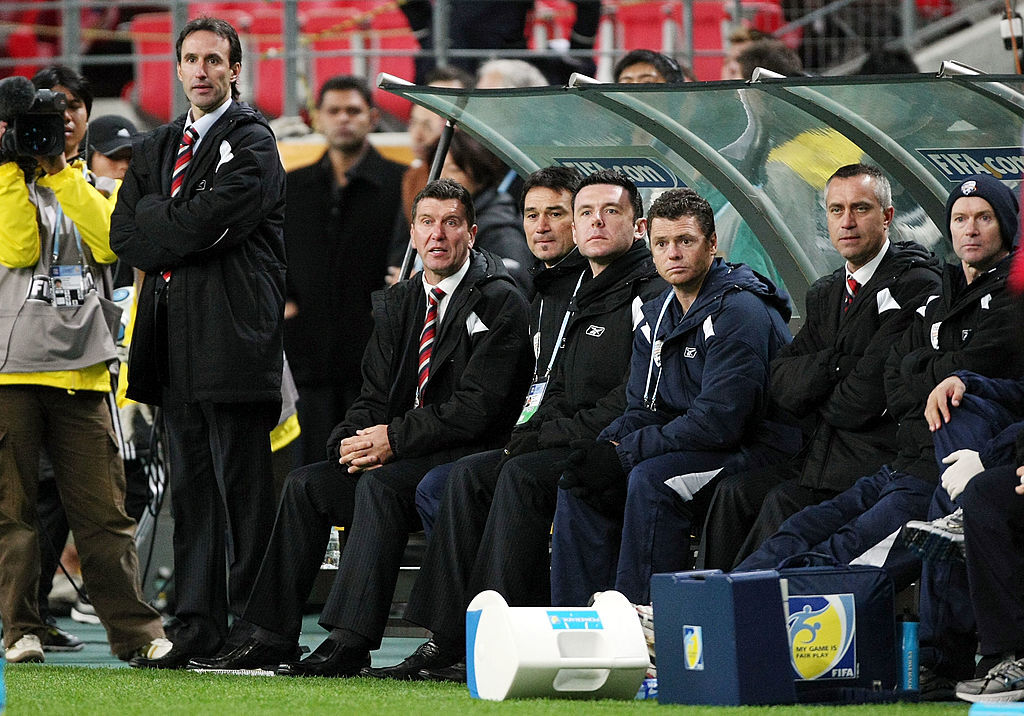
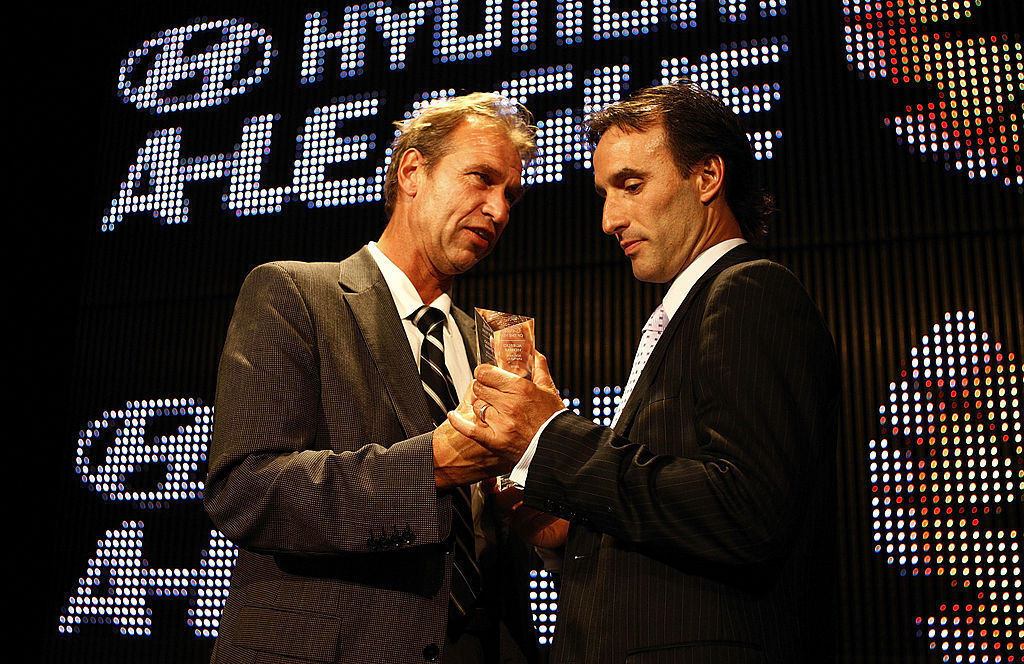
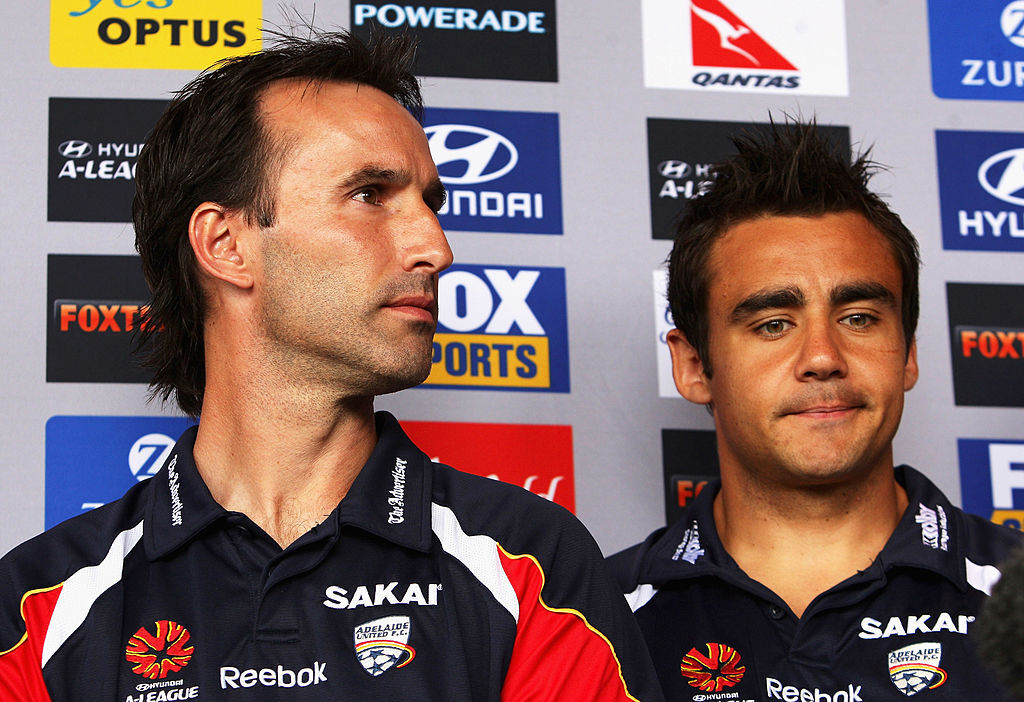
The following season was a disaster as Adelaide went on to finish bottom of the standings. Vidmar was banned for two matches after a controversial remark mid-season at a November press conference, along with being handed a $10,000 fine.
He was relieved of his duties at the end of the season after 73 A-Leagues matches and a 34% win record.
Aurelio Vidmar’s Isuzu UTE A-League Coaching Record
| Games | 73 |
| Wins | 25 |
| Draws | 21 |
| Losses | 27 |
| Goals for | 87 |
| Goals against | 88 |
| Win rate | 34% |
| Points per game | 1.32 ppg |
Post Adelaide
After leaving Adelaide, Vidmar became the coach of the Olyroos, and was handed an assistant coaching role of the Socceroos in 2010.
He served under three national team coaches including Pim Verbeek, Holger Osieck and Ange Postecoglou – helping the latter win an historic Asian Cup in 2015.
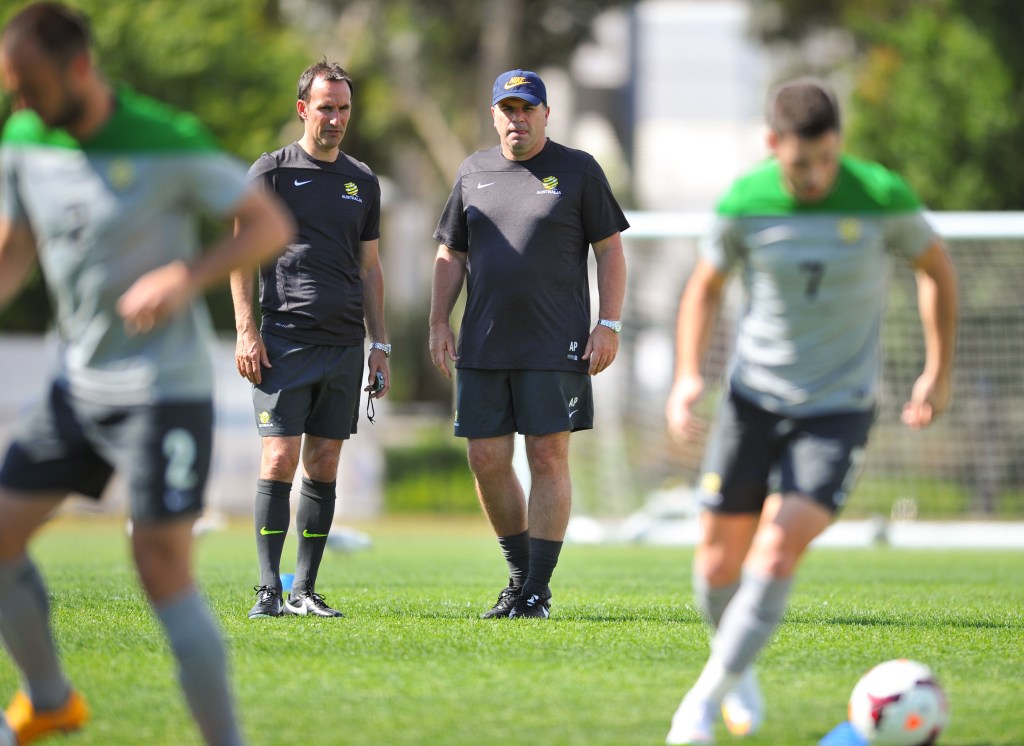
Between Osieck and Postecoglou’s reigns, Vidmar was the caretaker coach for one match, leading them to a 3-0 win over Canada at Craven Cottage.
As Olyroos boss, Vidmar would take Australia to two AFC-U23 Championships – with the latter doubling as qualification for the Rio Olympics.
They would be bundled out in the quarter-finals in the 2013 iteration, before being eliminated in the group stage in 2016, thus missing out on qualification.
Vidmar would return to club coaching, with a myriad of South-East Asian sides between 2016-22, either side of returning to the Reds as their Director of Football in 2018 for five months.
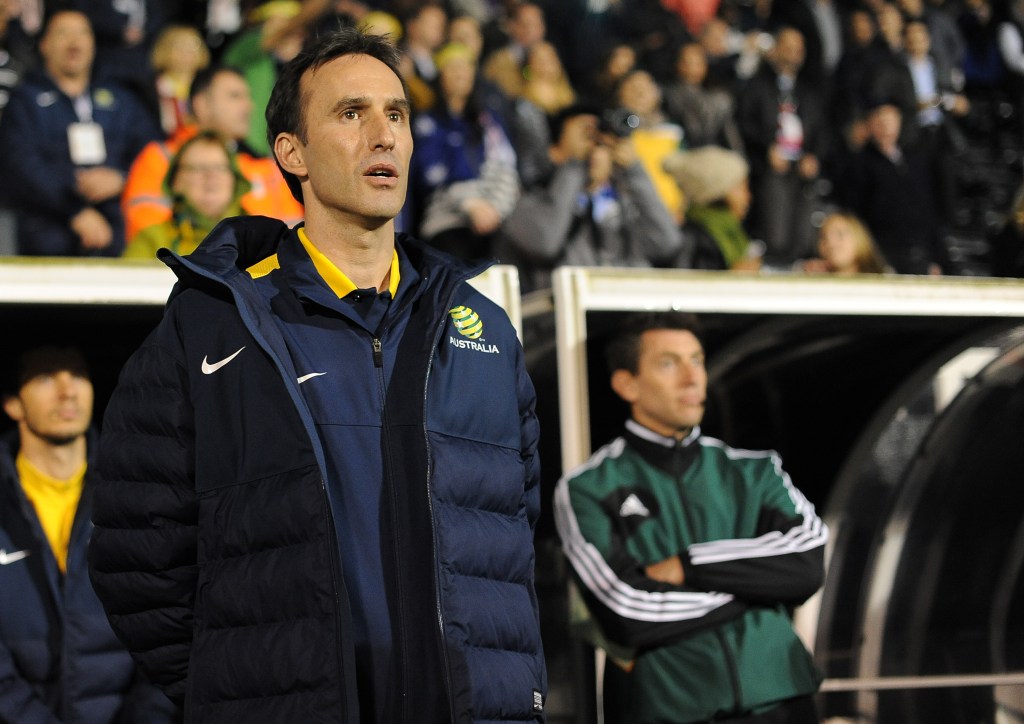
“I missed the grass, I want to be on the grass, I want to be teaching, I want to be coaching, it is something that is deep in me. That is the reason I wanted to get back into coaching – I wanted to be there with the players,” Vidmar said about his return to coaching on The Football Coaching Life podcast in February 2022.
“Once coaching is in your blood, it is very hard to take out.”
He first coached Bangkok Glass for a season, before joining Singapore Premier League side Lion City Sailors after resigning from the Reds in early 2019.
Vidmar would spend two years at the club, before returning to Thailand with BG Pathum United in 2021, leading them to the Thailand Champions Cup.
After his departure from the Thai giants, Vidmar joined Bangkok United in March 2022, spending most of the calendar year at the club before resigning due to personal reasons in December.
In his four coaching roles during this period, Vidmar won 58 games, drew 18 and lost 21.

